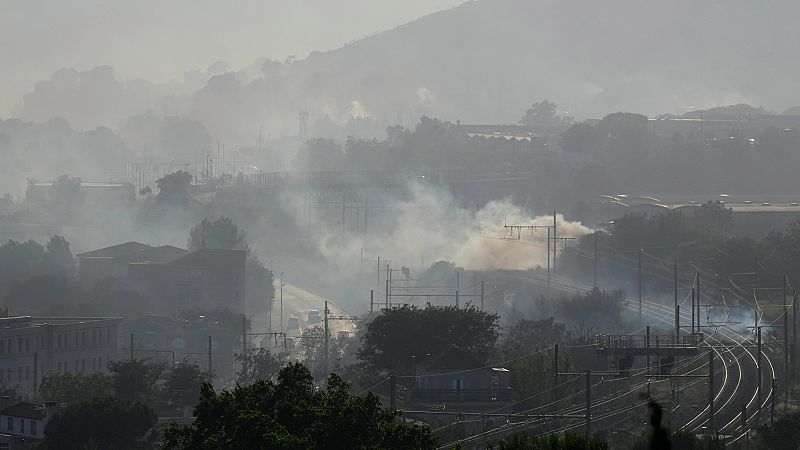Temporary Closure of Marseille Airport Due to Wildfire
Marseille Airport faced a temporary closure on Tuesday due to an ongoing wildfire near the southern French port city. The incident caused significant disruptions, affecting flights, train services, and road traffic in the surrounding area.
As of 9:30 AM on July 9, flights at the airport have resumed without restrictions, but delays and cancellations are still expected. Train traffic was also halted across much of the region, with some roads closed and others experiencing heavy congestion. The prefecture stated that the situation is under control, though the fire remains particularly intense. They urged people in affected areas to stay indoors and avoid using the roads.
Ongoing Flight Disruptions
Despite the resumption of flights, travelers are advised to expect continued disruptions. The airport has issued a notice urging passengers to check real-time updates for departing and arriving flights and to contact their airlines for more information. Those with reservations on canceled flights are advised not to go to the airport and instead reach out to their airline for details on applicable conditions.
Several flights have been canceled, including Turkish Airlines to Istanbul, Lufthansa to Frankfurt, Air France to Paris CDG, Aegean Cronus Airlines to Athens, Iberia to Madrid, Brussels Airlines to Brussels, Lufthansa to Munich, and Pegasus Airlines to Istanbul. Additionally, several arrivals are delayed or canceled.
Access to the airport via public transport and by road from Marseille remains disrupted, so travelers should plan accordingly and allow extra time for their journeys.
Impact on Train Services
Train traffic around Marseille was significantly affected as the fire approached the tracks in L’Estaque, a picturesque neighborhood of Marseille. SNCF, France’s national rail operator, reported that rail travel to and from Marseille would remain highly impacted on Wednesday. Over a dozen train services have been canceled or delayed in and out of the city. ZOU! rail service suspended its services in both directions between Marseille and Miramas.
Escalating Wildfire Situation
The wildfires, fueled by winds of up to 70 kilometers per hour, prompted the closure of Marseille Airport around midday on Tuesday. The fire broke out near Les Pennes-Mirabeau and spread toward Marseille, affecting 720 hectares. More than 1,000 firefighters were deployed to tackle the blaze, with nine injured. No fatalities have been reported.
Hundreds of homes were evacuated, and the prefecture urged residents in the affected areas to stay indoors and avoid the roads. In response to the approaching fire, residents in the northern part of Marseille were advised to keep windows closed to prevent toxic smoke from entering their homes.
A red alert has been issued for forest fire risk in Bouches-du-Rhone, Var, and Vaucluse, highlighting the severity of the situation.
Impact on Tourism and Travel Sentiment
The wildfire poses a significant threat to the tourism economy of southern France, especially during the peak summer season. Mabrian, a global travel intelligence platform, analyzed the impact of the natural disaster on air connectivity and traveler sentiment.
According to the analysis, up to 45,000 air seats and 282 flights could be affected between July 8 and 9. Marseille Airport serves as a crucial gateway to Provence and the South of France, welcoming 30 million tourists annually, particularly during the summer months. Any disruption to air traffic during this time is a cause for concern.
The wildfire is also influencing two key factors that drive travel demand: climate and safety perception. These factors are shaping visitor sentiment and overall experience in the region. Compared to the same period in 2024, Marseille’s Perception of Climate Index (PCI) has seen a sharp decline, dropping by -36.4 percent. Meanwhile, the Perception of Security Index (PSI) has experienced a marked decrease since July 1, representing a -5.1 percent year-over-year decline.







